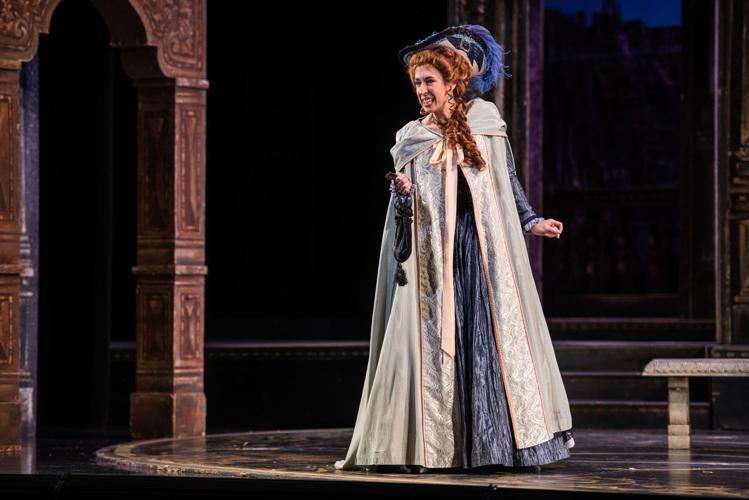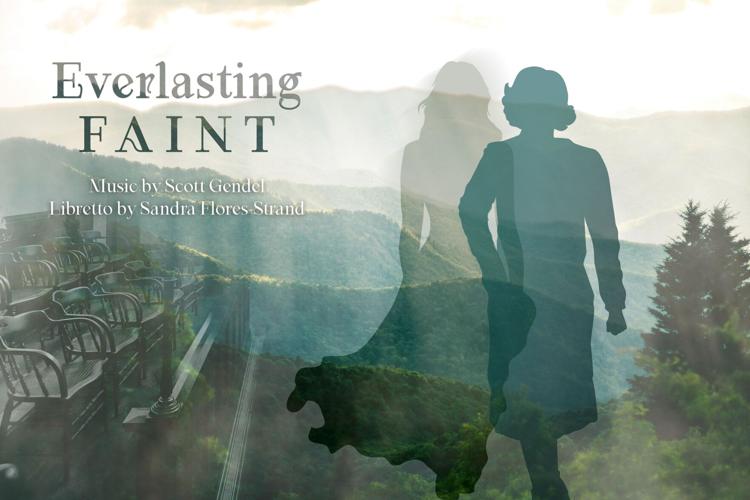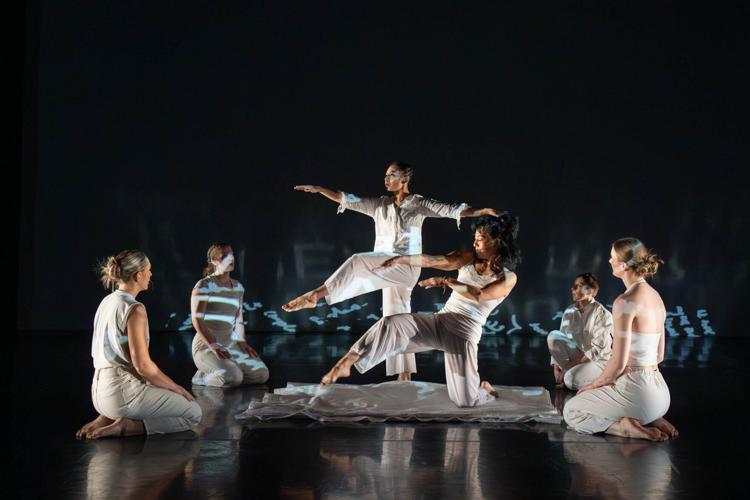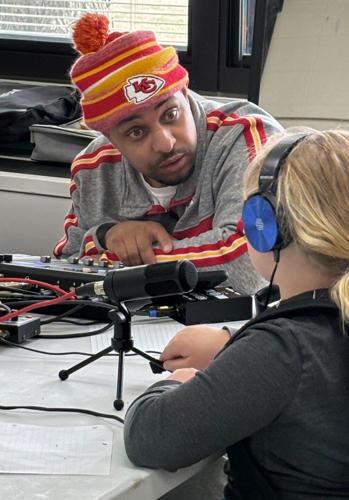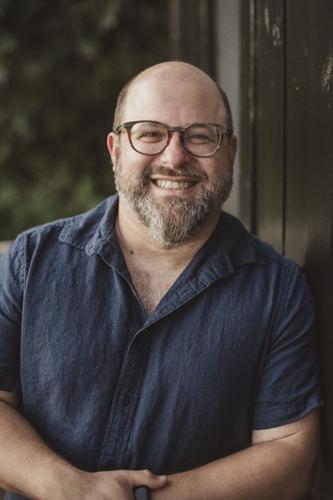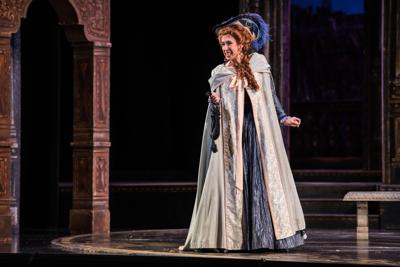Ten minutes before the curtain rose on “Don Giovanni” in Overture Hall on May 2, an email dropped into the inbox of Madison Opera general director Kathryn Smith.
The opera’s $25,000 grant from the National Endowment for the Arts had been canceled by the Trump administration, which pulled back grants from hundreds of organizations across the country. That one grant, designated to support a world premiere next spring, was more than the opera receives from all other government entities combined.
“It’s a hit,” Smith said. “It’s a loss of some serious money that we will need to figure out how to make up.”
American Theatre magazine called the massive grant callback a “Friday night massacre,” with small and midsize arts organizations hit the hardest. President Donald Trump has proposed eliminating the NEA completely, as well as the Institute of Museum and Library Services and the National Endowment for the Humanities. Some 1,200 federal Humanities grants were defunded in April, including funds for the Madison Children’s Museum and Wisconsin Humanities.

Prairie Music & Arts hosts the Northside Elementary Podcast Club with multimedia specialist Demancea "Dee" Star. The $10,000 grant this 25-year-old arts organization was to receive from the NEA would have been its first national grant.
As NPR reported the day after the latest cuts, the NEA “is the largest arts funder in the U.S. — yet one of the smallest federal agencies. It is currently funded at $207 million … 0.003% of the total federal budget.”
Madison Opera, Prairie Music & Arts and Li Chiao-Ping Dance all lost out on National Endowment for the Arts funding this month. For applicants, an NEA grant requires patient investment over the course of a year. Organizations must provide proof of concept and demonstrated community value, with the promise of more than just funds (though those are important) once a grant is awarded.
The smaller the organization, the greater the potential pain of loss. Some, like Prairie Music & Arts, have already spent the money and were expecting the NEA grant as a reimbursement.
Madison Opera had earmarked the $25,000 toward a new commission from composer Scott Gendel. “Everlasting Faint” is set to open in February.
“For any opera company, especially a small one like ours, (NEA) is the stamp of approval from professionals in the arts world,” Smith said. “On a national level, (it says) ‘your company and this project is worthy of funding.’ This opera was something that they think should come into existence.
“They don’t fund the majority of the things that get applied for,” Smith added. “It says, ‘You’re a great opera company doing interesting work, and we want to support it.’”

Madison Opera lost a $25,000 grant from the NEA that had been designated for "Everlasting Faint," a world premiere opera scheduled for February 2026.
Sun Prairie music program loses first national grant
According to the email arts organizations received, the National Endowment for the Arts — which saw a flurry of resignations from top staff earlier this week — now intends to “reflect the nation’s rich artistic heritage and creativity as prioritized by the President.”
“The NEA will now prioritize projects that elevate the Nation’s HBCUs (historically Black colleges and universities) and Hispanic Serving Institutions, celebrate the 250th anniversary of American independence, foster AI competency, empower houses of worship to serve communities, assist with disaster recovery, foster skilled trade jobs, make America healthy again, support the military and veterans, support Tribal communities, make the District of Columbia safe and beautiful, and support the economic development of Asian American communities.”
Notably, “the arts are not part of that,” said Kari Walton, founder and director of Prairie Music & Arts, a 25-year-old arts organization in Sun Prairie that serves students in kindergarten through eighth grade.
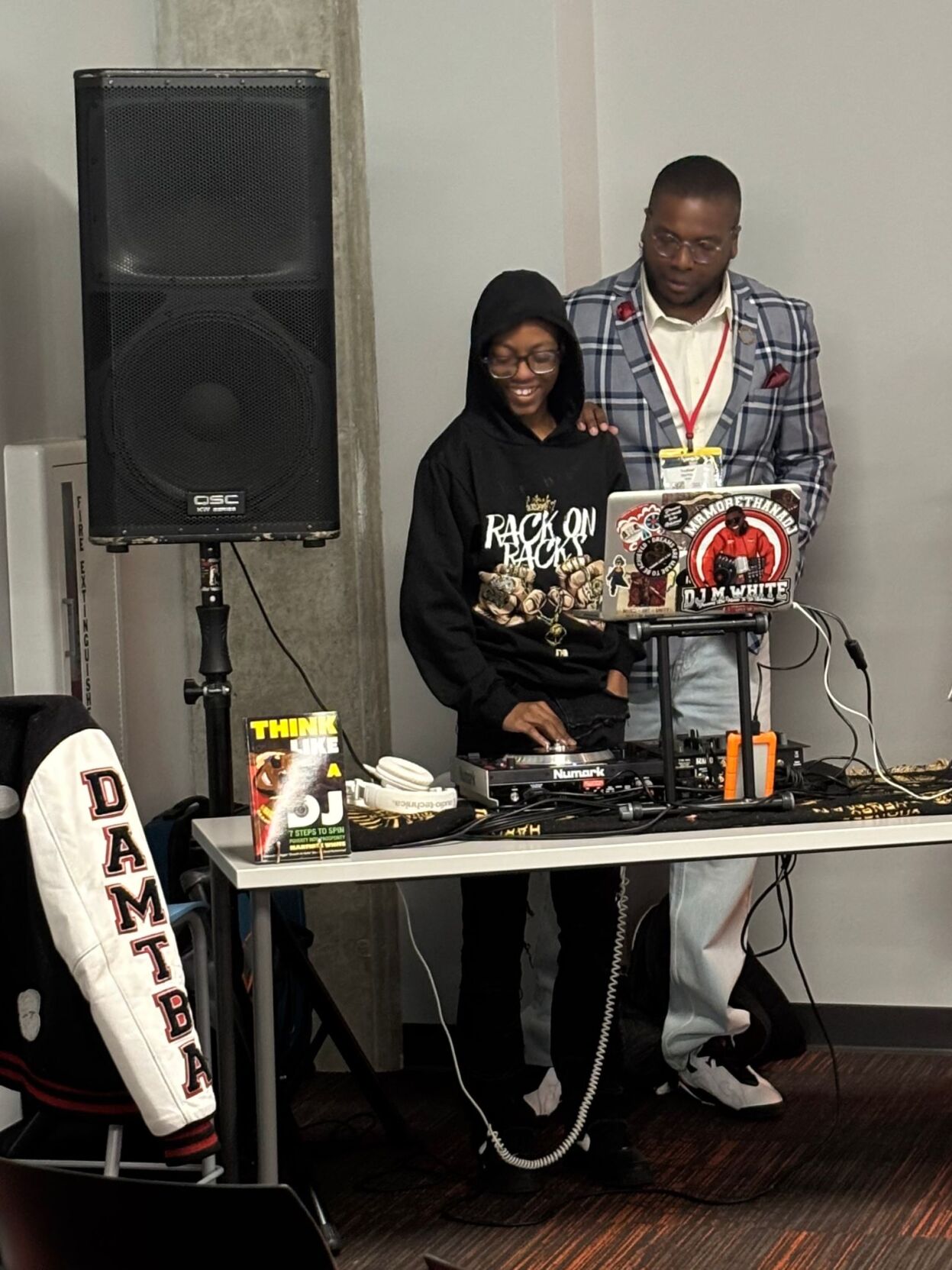
At the Dane Arts Business of Arts Conference, a student from Patrick Marsh Middle School presents an example of "Think Like a DJ" with author/teaching artist DJ Martinez White. Prairie Music & Arts produces this program.
Prairie Music learned it had received $10,000, its first ever federal grant, a few months ago. Founded as a brick and mortar music school, Prairie Music went “fully mobile” in 2022. It now has a budget of about $200,000 and hires teaching artists in dance, poetry, podcasting and more.
“We are the only afterschool, multi-disciplinary arts organization in Sun Prairie,” Walton said. “The services we provide are unique and go directly to kids after school.”
Unlike with some grants where “you receive a check and you can go do your program,” Walton said, funding from the NEA is reimbursed. Organizations must submit invoices for approved work before receiving money.
“We knew we were going to have to pay our teaching artists up front,” Walton said. “We had support and that knowledge we were going to get reimbursed for it down the road.”
Prairie Music no longer qualifies for an NEA grant under the Trump administration parameters.

“Dirty Laundry” combines new and previously shown choreographic material to create a long-form, self-reflective meditation on the traumas of anti-Asian racism.
In an Instagram story, Li Chiao-Ping Dance noted that its production of “Dirty Laundry” — a “multimedia dance theater work that explores Asian American identity, culture and historical events including the Stop Asian Hate movement” — no longer qualifies either. Produced by University of Wisconsin-Madison dance professor Li Chiao-Ping’s company, which is a resident of Overture Center, “Dirty Laundry” had been granted $15,000 over two years.
“This is a major setback to us all,” the company wrote, “but it won’t keep us down. I know we will all create the work anyway.”
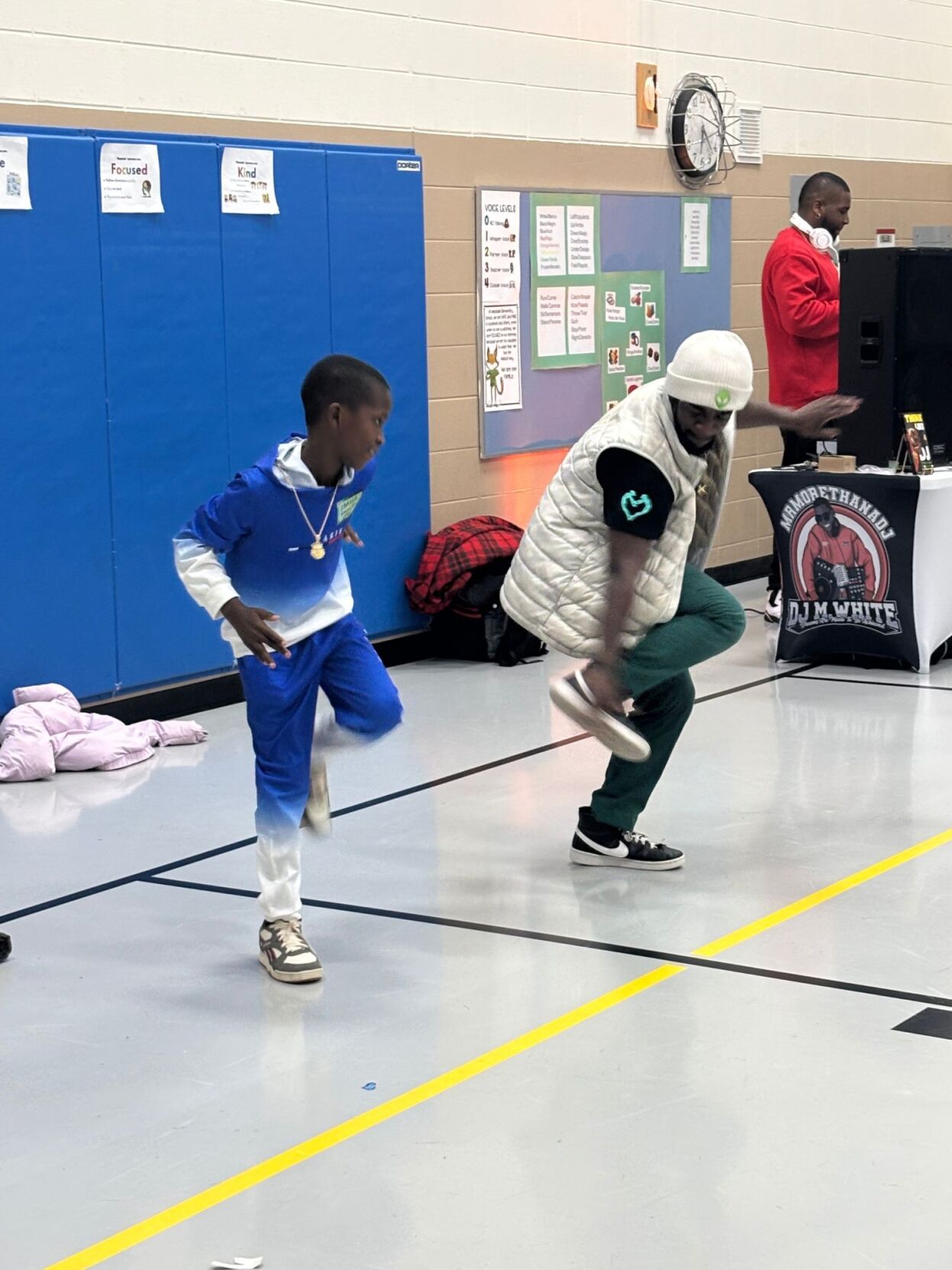
A student dancer works with teaching artist Papa-Kobina Brewoo at a Sun Prairie Creates Community Arts Night, produced by Prairie Music & Arts.
Federal grants help fill a funding gap in Wisconsin, where state support of the arts ranks 49th out of 50 states.
Several local organizations received funding from the NEA in the last year, including the Madison Museum of Contemporary Art ($50,000 for an art exhibition about incarceration), the Madison Symphony Orchestra ($15,000 for HeartStrings, a music therapy ensemble) and Opera for the Young ($30,000 to tour “The Magic Flute”). In 2024, the Wisconsin Arts Board was awarded just over $1 million.
In the most recent grant cycle, Wisconsin arts organizations got the green light for 17 NEA grants totaling $295,000. Many of them were small, like $10,000 for the Leigh Yawkey Woodson Art Museum in Wausau, or $10,000 for Latino Arts in Milwaukee.
“This grant was built on accessibility and equity and creating inclusive environments,” Walton said. “Reaching kids who would not have had opportunities otherwise. Now the parameters of the grant have been changed and we no longer fit those, even though we did before.”
Scott Gendel composed a song cycle, "Keep Moving," for Jeni Houser and David Blalock. It premiered in fall 2020.
‘It’s just going to be much harder now’
Madison Opera has a budget of about $2.7 million and produces three full operas each year as well as Opera in the Park, a huge, free-to-the-public concert each July. Smith said the company plans to launch a “Friends of ‘Everlasting Faint’” group to raise money for Gendel’s opera.
Smith applies to the NEA with the opera’s more experimental projects — works like “Dead Man Walking,” “Fellow Travelers” and “Florencia en el Amazonas” that might be a harder sell than another staging of “La Traviata.”
“The creation of new work is part of opera’s evolution,” Smith wrote in an email. “‘Everlasting Faint’ is the first world premiere Madison Opera has produced in over 30 years and thus is a testament to the artistic growth of both our company and our community.”

Set to be staged in February in the Capitol Theater, “Everlasting Faint” was inspired by the death of Zona Heaster Shue in West Virginia in 1897. Shue’s mother receives a visit from her daughter’s ghost, and that otherworldly testimony is enough to get the body exhumed — and discover Zona has been strangled.
“It’s part true crime drama, partly a ghost story,” Smith said. “Part of it is a maternal love story, this mother seeking justice for her dead daughter.”
Sandra Flores-Strand wrote the libretto. Gendel, an accomplished composer and vocal coach, has been working with the Madison Opera since 2008.
“Hopefully our community will support this new opera by a Madison composer,” Smith said.
Walton, too, is looking to local parents and arts lovers to keep Prairie Music going. She intended to reach out to “our constituents, expressing what has happened, inciting support,” she said. She also contacted legislators at the state and federal levels to plead their case.
“We’re just going to keep doing our work,” she said. “We have to keep moving forward. We have to keep doing the things that we feel passionate about and that that serves our mission.
“It’s just going to be much harder now.”


